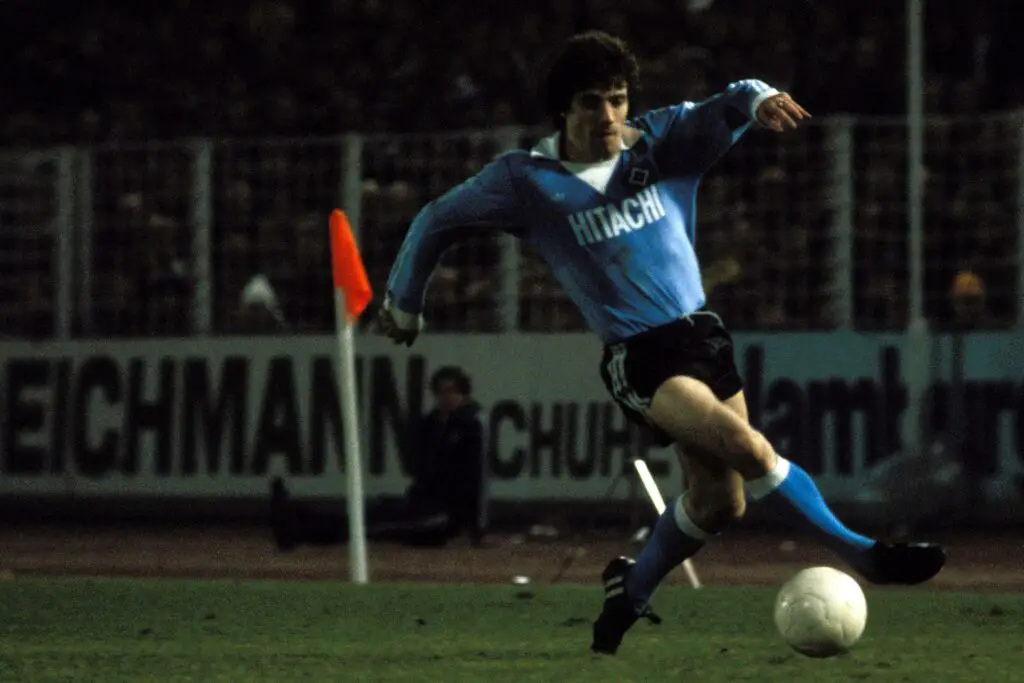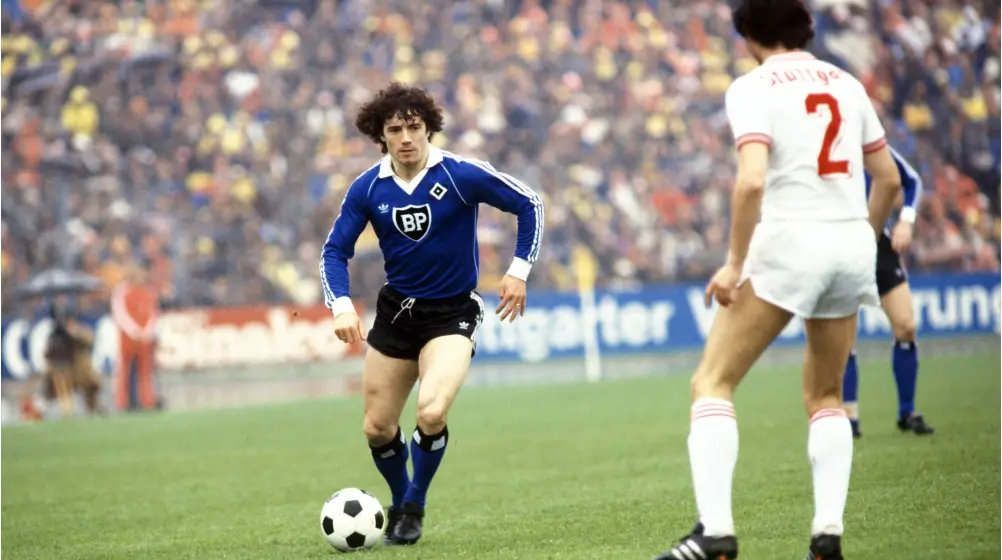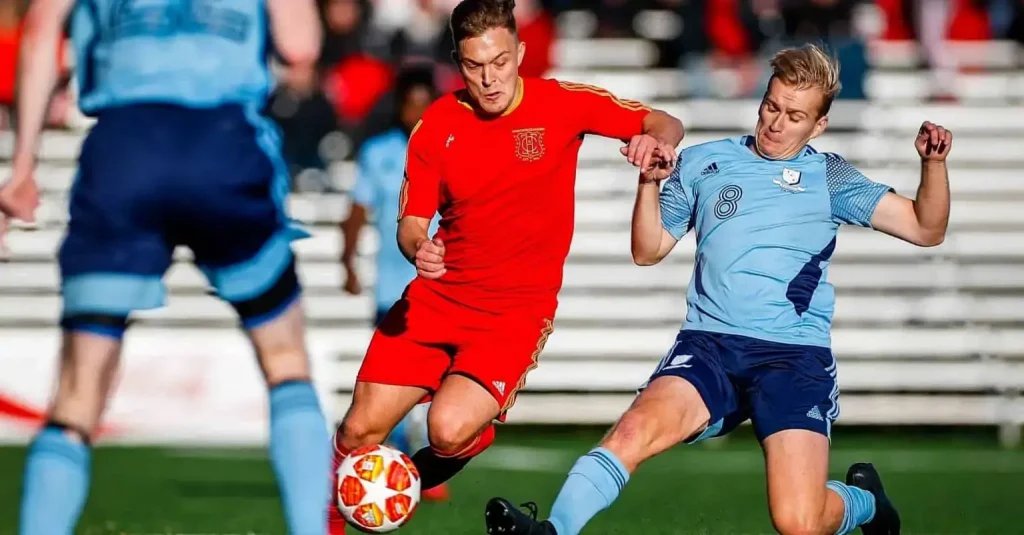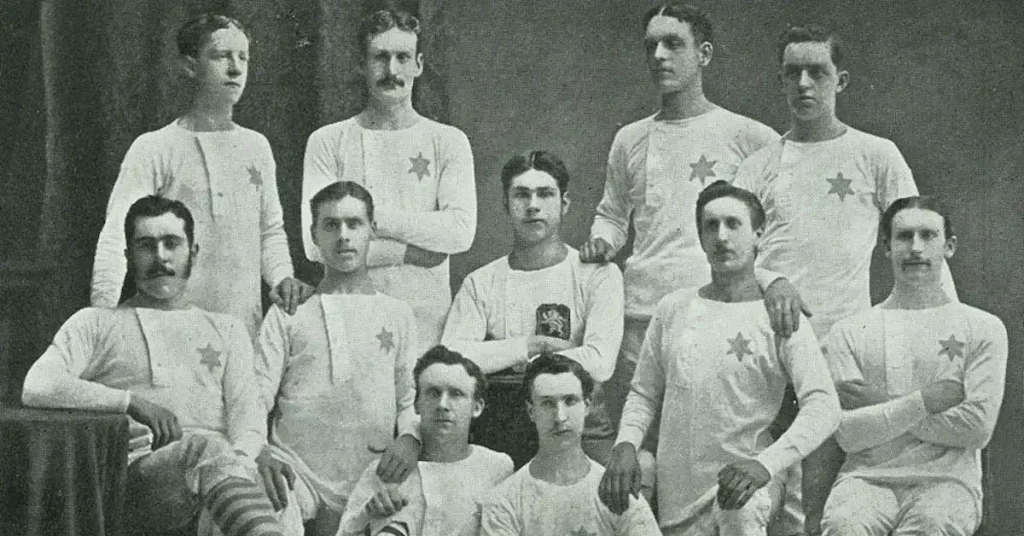If there was any doubt over Kevin Keegan being the right man for the 1978 Ballon d’Or, he’d leave any notions of being undeserving of the award dead and buried in 1979. Keegan would smash notions of his earlier victory being unwarranted, with an incredible follow-up year in Hamburg; building upon his Ballon d’Or winning season the previous year. Keegan’s time in Hamburg may have started with turbulence, but by his second season, he’d adjusted to life in Germany, subsequently enjoying the best season of his career.
Silencing the Doubters
Later given the name ‘Mighty Mouse’ by his Hamburg teammates, Keegan was in some form coming into the end of 79, having helped Hamburg to their first league title in 19 years and playing a huge role in England’s European Championship Qualifiers. His 3 goals in 4 games across 1979 would make all the difference, the most notable coming in a 1-0 win versus a strong Denmark.
Hamburg’s Bundesliga victory was a long battle for supremacy, a survival of the fittest. They won through consistency, never pulling away by too much, but always either breathing down the leader’s necks or setting the pace just a few points ahead of 2nd.
Their form and longevity over the course of this season was down to a change in tactical direction, inspired by a new coach. Branko Zebec. Zebec hailed from the former state of Yugoslavia and was a harsh, authoritarian disciple of a disciplined approach to football. Throughout pre-season, Keegan and his Hamburg teammates would face a rigorous regime of fitness, suited to soldiers.
With two of these training sessions a day, Hamburg players were worked till they had nothing left to give and were expected to still give more regardless.
Manegerial Masterclass
Keegan would recall his time under Zebec’s tutelage as “the fittest period of his life”. Naturally, Hamburg would plan to outrun and out-press teams with their near super-human levels of endurance.
Hamburg wouldn’t see the new regime sprout instant success, but as the players adapted to life under Zebec, they’d begin to prove themselves as an unstoppable, persistent force. A force Keegan was the beating heart of.
As Keegan would state in his autobiography – “But there was a method to the madness. After a while, those punishing sessions became second nature, and we started putting our extra stamina to use.”
Bundesliga victory did not come easily. HSV quickly cemented themselves in the top 5 from their first few match weeks, hovering around 4th for the first 8 or so weeks, before coming within 2 points of first place Kaiserslautern by week 9
Hamburg would battle to gain ground during a period of football in which wins counted for just 2 points instead of three. Catching even slender leads was much harder at the time, especially as lesser teams were content to hold on for a 0-0 draw with ultra-defensive football given how much more valuable one point was.
Nevertheless, Hamburg would eventually go the distance, taking it to the penultimate matchday. By this point Stuttgart and Hamburg were the only title contenders, so Stuggartt’s 4-1 loss to Koln in the penultimate week would mean Hamburg’s draw with Arminia Bielefeld was enough to end a 19-year wait for a Bundesliga title.
Keegan bagged 17 league goals playing in a variety of midfield and attacking positions. He played Right-Wing and Attacking Midfield for the most part, but saw a handful of games on the Left-Wing, at Center Midfield and also as a Center Forward. Once again proving his versatility, and building further upon it with 17 league goals that season, Keegan had already made a strong case for back-to-back Ballon d’Or wins just halfway through the season.
After a good start to the next season, leading into 1980 Keegan was poised to receive the award weeks before the ceremony. A statement shown to be accurate by his runaway victory at the 1979 Ballon d’Or. Keegan would finish 1st by a resounding 66 points, finishing on 118 points to 2nd place Rummenigge’s 52. The 2nd placed German would go on to win the award the next year, repeating Keegan’s feat of back-to-back victories.






